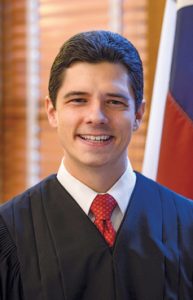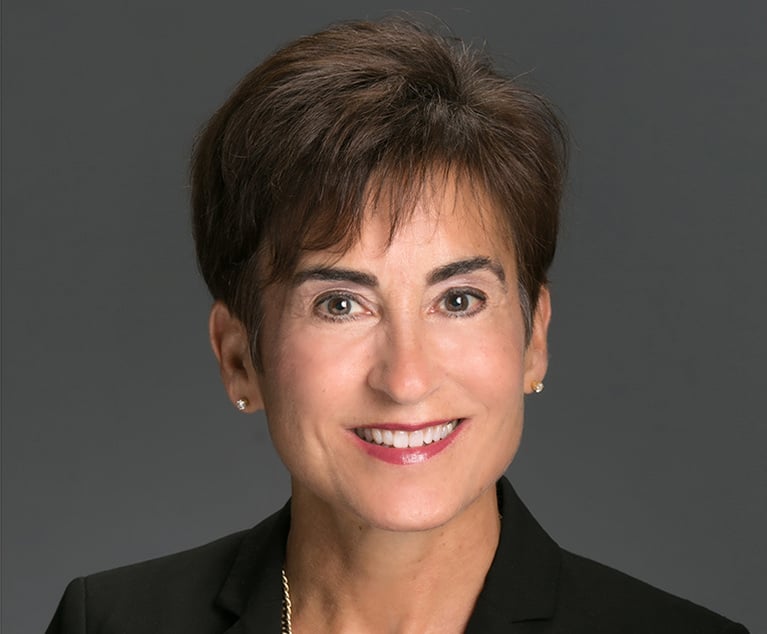Texas Moves Forward With July Bar Exam, Adds September Option
In an order Wednesday, the Texas Supreme Court said the July bar exam will take place as scheduled, under guidance of public health authorities.
April 29, 2020 at 03:08 PM
4 minute read
The original version of this story was published on Texas Lawyer
 Texas Supreme Court building in Austin, Texas. (Photo: Angela Morris/ALM)
Texas Supreme Court building in Austin, Texas. (Photo: Angela Morris/ALM)
The July Bar Examination in Texas will go forward as scheduled, but test-takers may also choose to take the exam in September or at a later date for no additional fee, the Texas Supreme Court ordered Wednesday.
The capacity for the July exam will be decided after the Texas Board of Law Examiners consults with public health authorities "regarding best practices for administering the examination safely," the court wrote in its Thirteenth Emergency Order Regarding the COVID-19 State of Disaster.
The order also updates the rules to allow unlicensed law students and law school graduates to practice under supervision. The new rules are effective May 18, according to the order, but may be changed following public comment "and as rapidly changing circumstances warrant."
"We are very pleased that under the guidance of public health authorities, we will be able to put on the July exam as scheduled, but we have this system in place so they can begin their practice under supervision while they wait to take the bar," said Justice Brett Busby, the court's liaison to the Texas Board of Law Examiners.
The court wrote in the order that "disruptions to personal and professional lives caused by the pandemic," may result in some applicants not having time to prepare for the July bar, or that some may no longer want to take the July exam for personal health reasons.
If the board cannot accommodate all who registered for the July exam, the board will prioritize based on registration date, and automatically register the extras for the September exam.
Susan Henricks, executive director of the Texas Board of Law Examiners, said she expects about 2,000 people will register to take the test in July or September, and the board should be able to accommodate all of them between the two dates.
She said plans call for about 1,000 test-takers on each date. "We are going to have people spread out, six feet apart. We've ordered 5,000 surgical masks," she said.
Scores from the September exam are likely to be released in a quick turnaround of about three weeks after results from the July exam are made public.
 14th Court Justice Brett Busby.
14th Court Justice Brett Busby.Busby said Texas has allowed supervised practice for many decades. Unlicensed law graduates generally have 14 months from graduation to practice under supervision. But the court has now relaxed the rule, so graduates who are clerking and may have graduated a year or two ago still have a 14-month period from now. Busby said the previous rule only allowed for one attempt at the exam, and now allows for two attempts.
"There are two pressures right here," Busby said. "We want to make sure the graduates can take the bar exam so they can get started with their practice, but we also want to make sure they can do it safely," he said.
Michael F. Barry, dean of South Texas College of Law Houston, said Texas law school deans were pleased that the Texas Supreme Court and the board included them in discussions about scheduling the exam in the wake of the COVID-19 crisis.
"The board did a nice job of recognizing that some students really do want to take the July bar exam—they have been preparing for it and a delay is a financial and an emotional challenge for them—but also acknowledging that some people have been affected by the pandemic," Barry said.
Read More
Officials Ponder Potential Delay in July Bar Exam Because of COVID-19
NOT FOR REPRINT
© 2025 ALM Global, LLC, All Rights Reserved. Request academic re-use from www.copyright.com. All other uses, submit a request to [email protected]. For more information visit Asset & Logo Licensing.
You Might Like
View All
Landlord Must Pay Prevailing Tenants' $21K Attorney Fees in Commercial Lease Dispute, Appellate Court Rules
4 minute read
State Appellate Court Settles Fee Battle Between Former Co-Counsel in Patent Litigation
5 minute read
Return to Work Mandates Among Current Mental Health Stressors for Legal Professionals
1 minute read
Internal GC Hires Rebounded in '24, but Companies Still Drawn to Outside Candidates
4 minute readTrending Stories
- 1'Translate Across Disciplines': Paul Hastings’ New Tech Transactions Leader
- 2Milbank’s Revenue and Profits Surge Following Demand Increases Across the Board
- 3Fourth Quarter Growth in Demand and Worked Rates Coincided with Countercyclical Dip, New Report Indicates
- 4Public Notices/Calendars
- 5Monday Newspaper
Who Got The Work
J. Brugh Lower of Gibbons has entered an appearance for industrial equipment supplier Devco Corporation in a pending trademark infringement lawsuit. The suit, accusing the defendant of selling knock-off Graco products, was filed Dec. 18 in New Jersey District Court by Rivkin Radler on behalf of Graco Inc. and Graco Minnesota. The case, assigned to U.S. District Judge Zahid N. Quraishi, is 3:24-cv-11294, Graco Inc. et al v. Devco Corporation.
Who Got The Work
Rebecca Maller-Stein and Kent A. Yalowitz of Arnold & Porter Kaye Scholer have entered their appearances for Hanaco Venture Capital and its executives, Lior Prosor and David Frankel, in a pending securities lawsuit. The action, filed on Dec. 24 in New York Southern District Court by Zell, Aron & Co. on behalf of Goldeneye Advisors, accuses the defendants of negligently and fraudulently managing the plaintiff's $1 million investment. The case, assigned to U.S. District Judge Vernon S. Broderick, is 1:24-cv-09918, Goldeneye Advisors, LLC v. Hanaco Venture Capital, Ltd. et al.
Who Got The Work
Attorneys from A&O Shearman has stepped in as defense counsel for Toronto-Dominion Bank and other defendants in a pending securities class action. The suit, filed Dec. 11 in New York Southern District Court by Bleichmar Fonti & Auld, accuses the defendants of concealing the bank's 'pervasive' deficiencies in regards to its compliance with the Bank Secrecy Act and the quality of its anti-money laundering controls. The case, assigned to U.S. District Judge Arun Subramanian, is 1:24-cv-09445, Gonzalez v. The Toronto-Dominion Bank et al.
Who Got The Work
Crown Castle International, a Pennsylvania company providing shared communications infrastructure, has turned to Luke D. Wolf of Gordon Rees Scully Mansukhani to fend off a pending breach-of-contract lawsuit. The court action, filed Nov. 25 in Michigan Eastern District Court by Hooper Hathaway PC on behalf of The Town Residences LLC, accuses Crown Castle of failing to transfer approximately $30,000 in utility payments from T-Mobile in breach of a roof-top lease and assignment agreement. The case, assigned to U.S. District Judge Susan K. Declercq, is 2:24-cv-13131, The Town Residences LLC v. T-Mobile US, Inc. et al.
Who Got The Work
Wilfred P. Coronato and Daniel M. Schwartz of McCarter & English have stepped in as defense counsel to Electrolux Home Products Inc. in a pending product liability lawsuit. The court action, filed Nov. 26 in New York Eastern District Court by Poulos Lopiccolo PC and Nagel Rice LLP on behalf of David Stern, alleges that the defendant's refrigerators’ drawers and shelving repeatedly break and fall apart within months after purchase. The case, assigned to U.S. District Judge Joan M. Azrack, is 2:24-cv-08204, Stern v. Electrolux Home Products, Inc.
Featured Firms
Law Offices of Gary Martin Hays & Associates, P.C.
(470) 294-1674
Law Offices of Mark E. Salomone
(857) 444-6468
Smith & Hassler
(713) 739-1250








